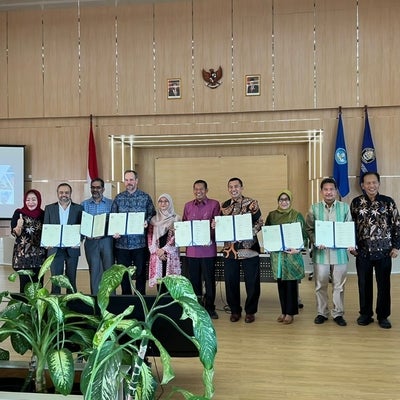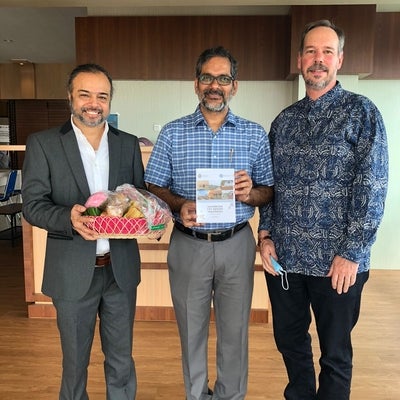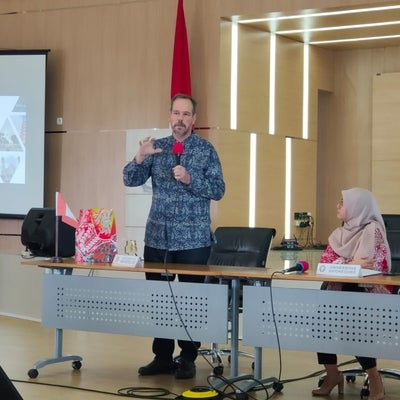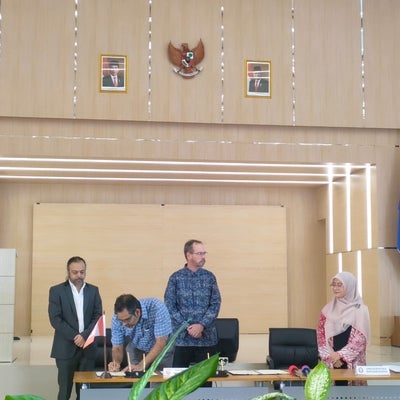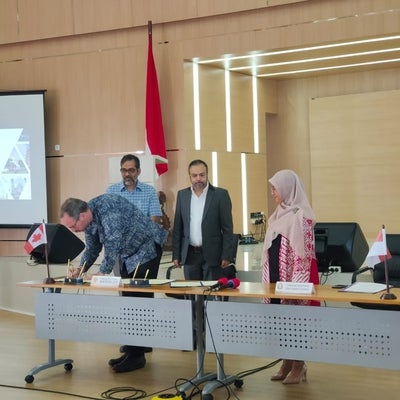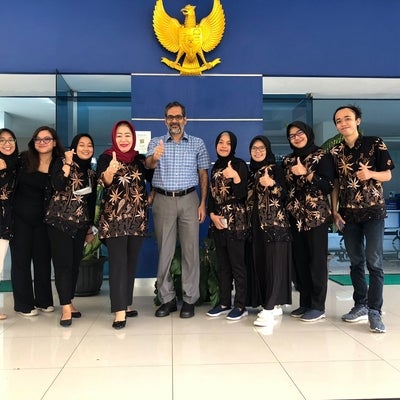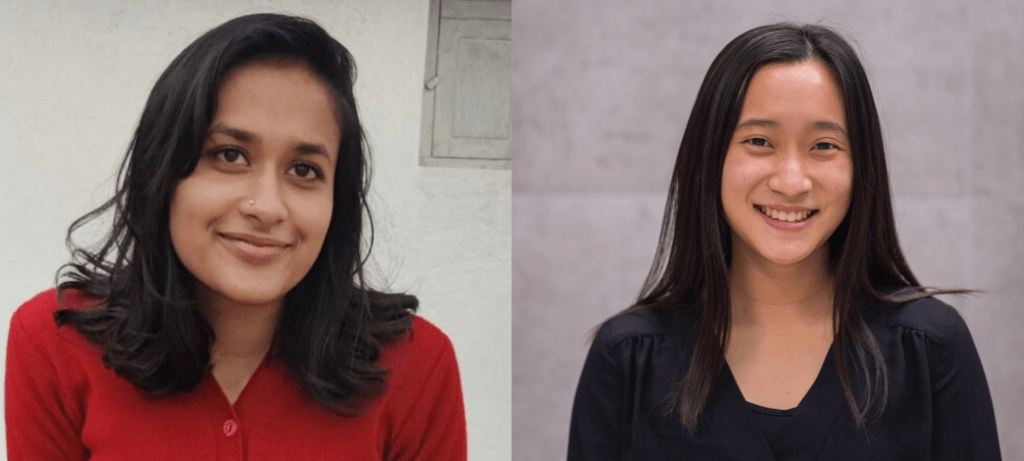Estimated reading time: 1 minute
To explore possibilities for collaboration on academic and research activities of mutual interest, the University of Waterloo has signed a memorandum of understanding (MOU) with Diponegoro University in Indonesia (UNDIP), a public institution in Semarang, Central Java.
The signing of this MOU is based on a longstanding relationship between the two institutions that began ten years ago through the participation of faculty members from UNDIP in research projects supported by the Social Sciences and Humanities Research Council (SSHRC), Canada which was hosted by the Faculty of Environment. Over the years there were several visits to Canada and Indonesia attended by the institutions and government officials to explore further grounds for collaboration. That resulted in UNDIP becoming an official partner on the SSHRC supported V2V Global Partnership research and graduate students from Waterloo being hosted by UNDIP to conduct their thesis research in Indonesian field locations.
To expand on this success, the idea of a formal institutional MOU took final shape during a delegation visit to Waterloo in November 2022. Moving forward, the scope of collaboration includes:
- Creating in person or remote shared courses, lectures, workshops, seminars, conferences, programs, or degrees
- Development of joint research activities and proposals for funding
- Mobility of faculty, staff, and students to explore and enable potential collaborations, teach, or conduct research
- Exchange of teaching or research collaboration results and learning
“The agreement between Waterloo and UNDIP will create diverse opportunities for faculty members, students and staff to engage in collaborative research, experiential learning and other forms of creative engagements,” said Bruce Frayne, Dean of the Faculty of Environment, at the signing ceremony in the beautiful and historic city of Semarang in Central Jawa, Indonesia.



